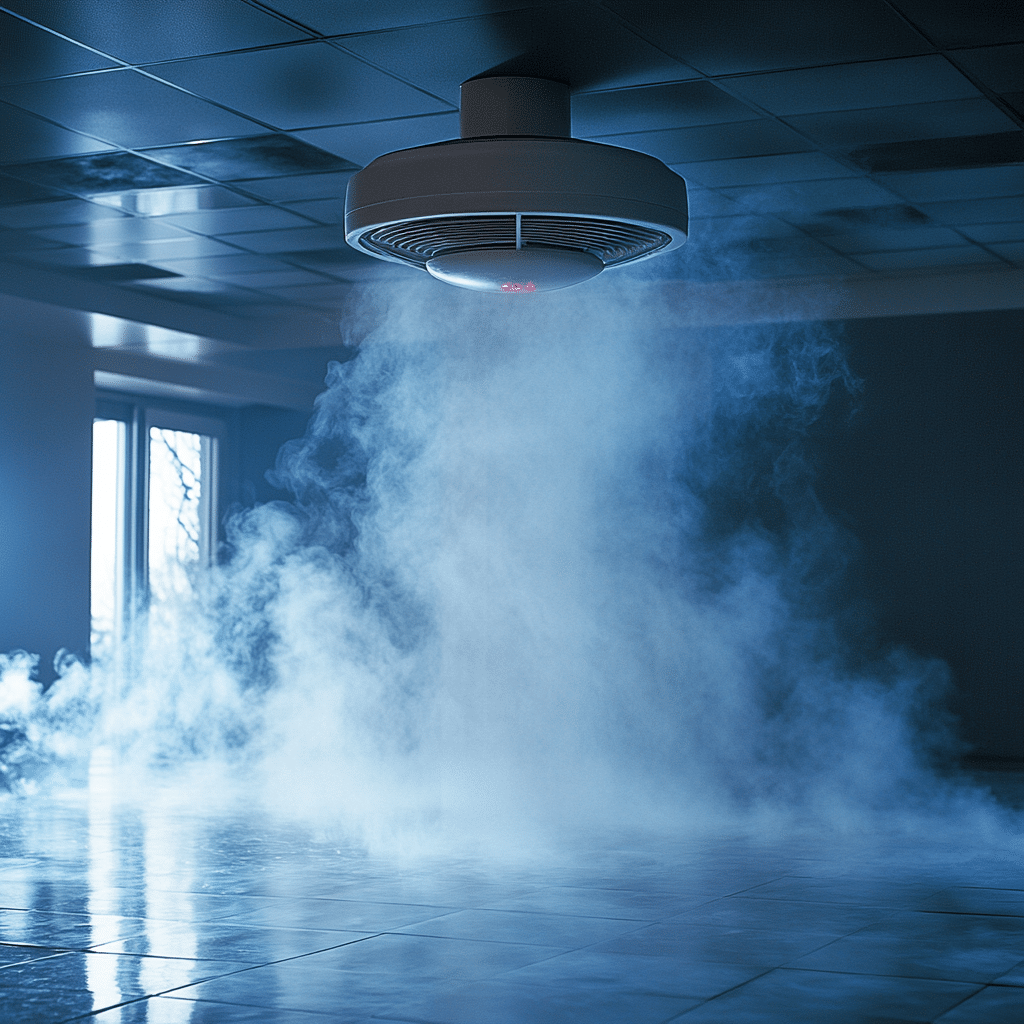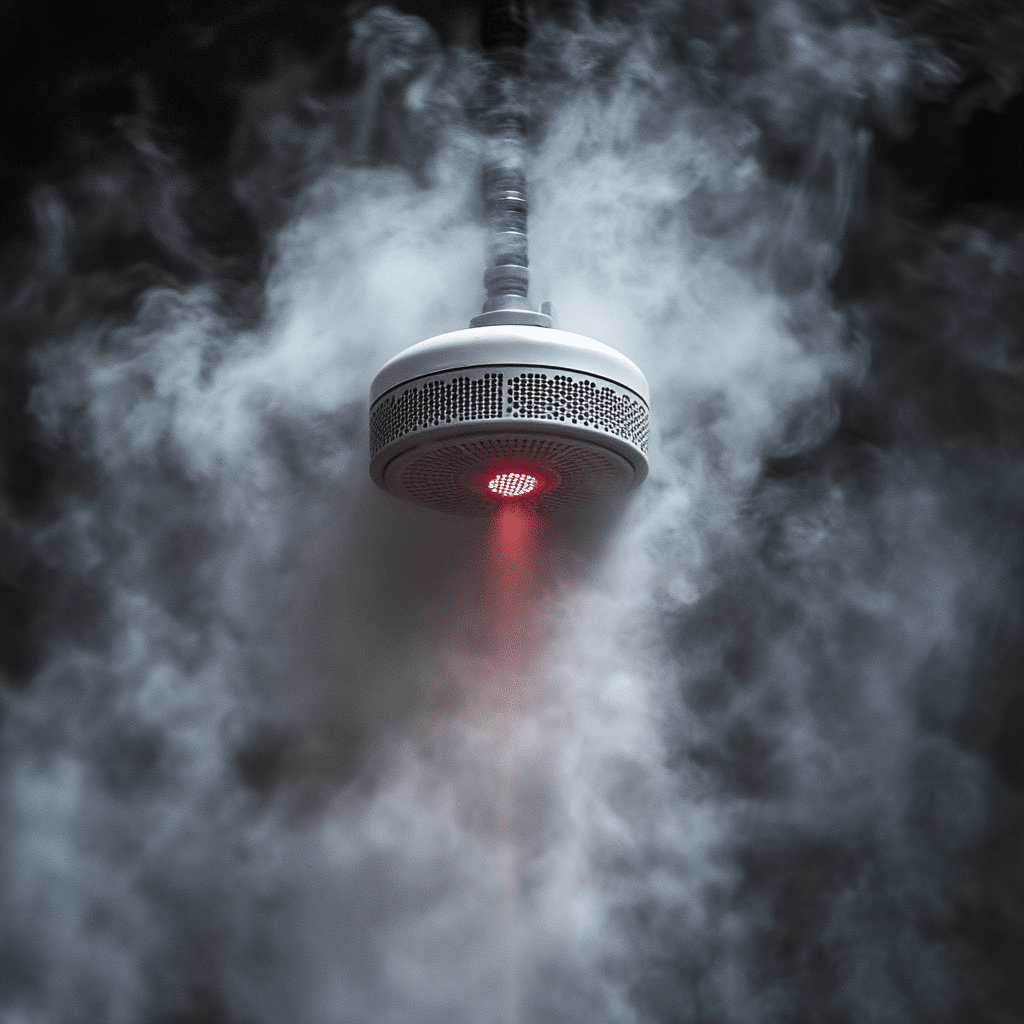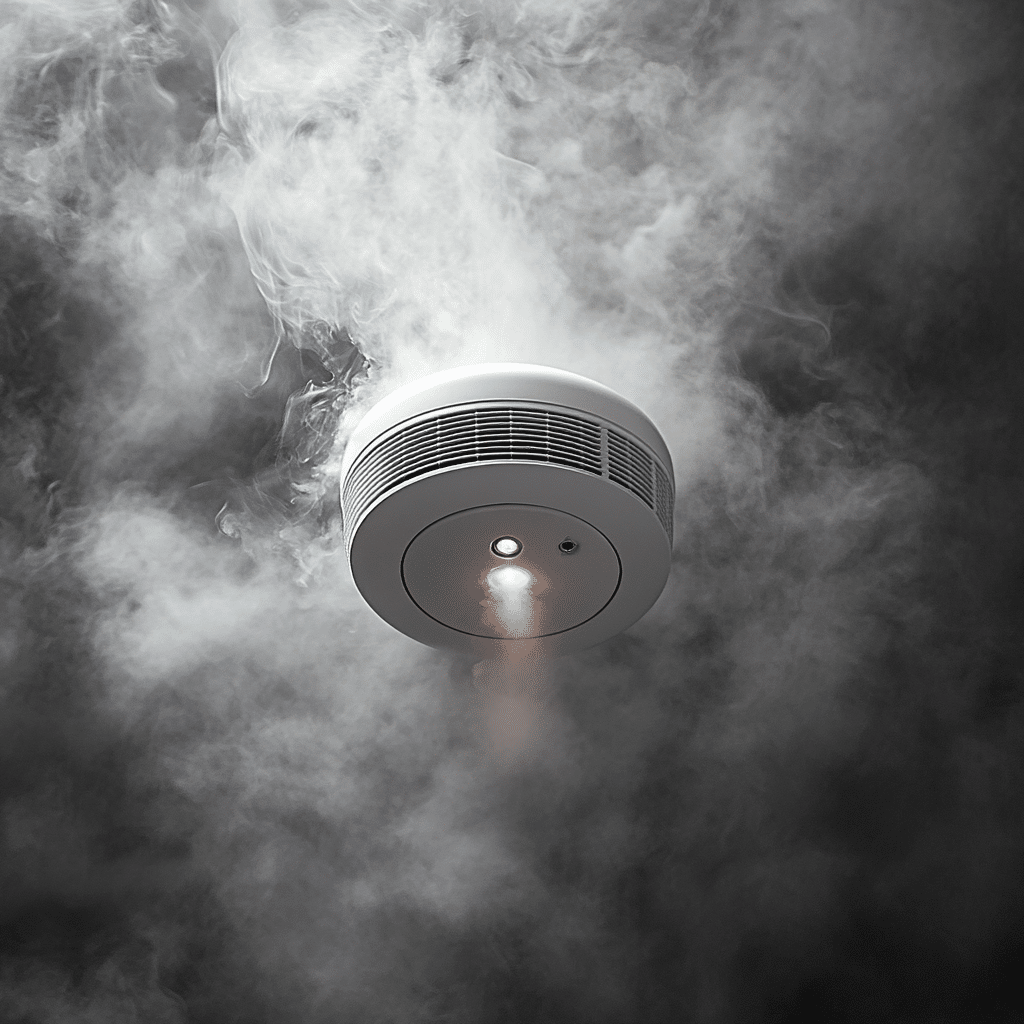So you’re chillin’ in your crib, vibing with that new sculpted sofa perfect for impressing guests, and then—BEEP! A smoke alarm chirps. It’s not just annoying; it’s demanding your attention. Nope, it’s not out of battery yet, or is it? Smoke alarm chirping is like that friend who never takes a hint. It forces you to think about your home safety. And let’s be real, fellas: if you want to live large, you’ve gotta stay smart about safety. Let’s dive into some secrets that’ll make you the most prepared homeowner on the block.
Top 5 Reasons Your Smoke Alarm is Chirping (and What You Should Do)
1. Low Battery Warning
Ah, the classic. Smoke alarm chirping can often mean you’ve got a low battery. Devices like the Kidde i9010 let you know with a little chirp that, hey, it’s time for a battery swap. It’s a friendly nudge, but don’t ignore it! If you keep putting it off, you risk facing false alarms that never activate when it truly counts. Changing the battery regularly, ideally every year, means you’ll sleep better at night.
2. Malfunctioning Smoke Detector
Sometimes, that friendly chirp means things aren’t going smoothly. Popular models like the First Alert Onelink Safe & Sound might be confused because of dust bunnies or wiring issues. Sketchy wiring? No thanks! Regular maintenance is your best friend here—consider vacuuming it up or setting a reminder to replace older units every decade. Check out the manufacturer’s guidelines; those will help you nip problems in the bud.
3. Environmental Factors
Does your smoke alarm beep like it’s just come from a smoke buffet? You may have environmental issues at play—think humidity or smoke from your legendary beef brisket on the grill. According to some serious research by the National Fire Protection Association, nearly 38% of fire alarm activations happen because of localized smoke from cooking. To keep the pesky chirps at bay, position your alarms away from the kitchen!
4. End of Life Alert
Most modern detectors, including Nest and First Alert models, have a chic little feature that chirps when it’s on its last legs—usually around the ten-year mark. If you hear that chirp, it’s your smoke alarm’s way of whispering, “Time’s up, buddy!” Neglecting this could leave you with outdated tech that won’t save the day in an emergency. Set calendar reminders for checking the manufacturing date; keep your home safe!
5. Carbon Monoxide Detection
Your smoke alarm chirping ain’t always about smoke; sometimes it’s shouting CO danger! If you’ve got a combo smoke and carbon monoxide detector, a chirp could mean trouble. Evacuate immediately and call in the professionals—don’t play around with that. Trust devices like the Nest Protect for dual monitoring; they can be lifesavers.

The Emotional Toll of Fire Alarms: A Study in Psychosocial Impact
It’s easy to brush off a smoke alarm as just another gadget, but let’s face it—those chirps can create some anxiety. A study published in the Journal of Emergency Medical Services reveals that the high-pitched sound can elevate stress levels, especially for kids and older folks. Families with little ones, often napping in toddler floor beds, may find these sounds particularly distressing.
One particularly heartbreaking case from 2022 showed how frequent false alarms negatively impacted a family’s emotional well-being. Panic ensued, and the child’s sleep patterns spiraled as the alarm blared. For families, teaching fire safety can transform this panic into preparedness, making it easy to stay cool when alarms sound.
The Connection Between Fire Safety Devices and Broader Safety Measures
Let’s get real—having the latest smoke detection tech is cool, but what about that fire emergency plan? Poorly executed evacuation plans can have catastrophic consequences. Remember that the 2021 plane crash that started multiple fires in a residential area? That’s a wake-up call. Fire drills at home can arm families with the know-how to react instinctively to a smoke alarm chirping. The mantra should be clear: prepare to protect, not panic!

The Unexpected Benefits of Proactive Smoke Alarm Maintenance
Going the extra mile with smoke alarm maintenance isn’t just about safety—it extends to household harmony. A homeowner in Michigan noticed their hardwired alarm system had wiring issues during a routine inspection; the intermittent chirping could have led to a potentially serious danger.
Let’s sprinkle in some extra love here: by embracing regular maintenance, you foster a chill, alert household atmosphere. Families can break bread in peace without that nagging fear attached to fire safety. When everyone knows the safety procedures, stress drops, and harmony rises.
Final Thoughts on Smoke Alarm Chirping Secrets
So, fellas, here’s the lowdown on your smoke alarm chirping. This whole experience can empower you to keep your fortress safe. By staying on top of maintenance and educating your crew about fire safety, you minimize risks and bolster your lifestyle as a modern, ambitious man. Fires can hit unexpectedly, but with a ready plan and the right tech, you can handle it without breaking a sweat. Be proactive—combine your efficient smoke detection with comprehensive family planning, and you’ll tackle whatever comes your way. Stay informed, stay sharp, and let those chirps guide you to a better, safer home.
And hey, while you’re at it, if you’re planning a big gathering, check out some thanksgiving Memes to lighten the mood, and maybe try spicing things up with Guajillo Peppers in your next dish. Cheers to living large and living smart!
Smoke Alarm Chirping: Secrets That Demand Your Attention
Understanding the Chirp
Ah, the infamous smoke alarm chirping! This sound might just be your home’s way of whispering a reminder, but did you know that it’s often an indicator of something essential? Most commonly, a chirp means it’s time for a battery replacement. Over 60% of smoke alarms that don’t work often have dead or missing batteries. Just like you’re not paying attention to your Desayunos, ignoring that chirp can lead to disaster. So, keep those batteries fresh and ready to go!
Interesting Facts Behind the Chirp
Did you know that smoke alarms have been saving lives since the 1960s? That’s right! Their development marked a turning point in fire safety. However, it’s important to remember that technology is always advancing, just like in movies featuring Nuevo technology. For instance, some modern alarms connect to your smartphone, giving you the heads-up on malfunctions while you’re cozied up on the couch—or out for some groceries. Imagine getting a notification while you’re tackling Pge Outages or sipping on coffee!
The Alarm’s Language
Every chirp is a message, and learning their meanings can be rather enlightening. A chirp every minute might suggest low battery, while a series of three quickly means smoke or fire. On the flip side, if you’re wondering, “Can I pay my home mortgage with credit card?” perhaps work the funds towards installing a newer model that features more sophisticated warning systems. Just like r in cursive, sometimes the little details can save the day. Remember, understanding the language of smoke alarm chirping is as crucial as checking your smoke alarm itself, because prompt responses equate to safety. So the next time you hear that chirping, don’t shrug it off; it could very well be your home’s voice calling out for help!














